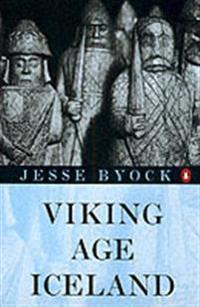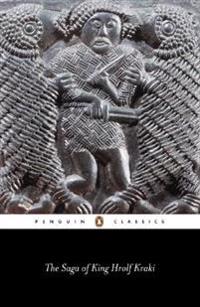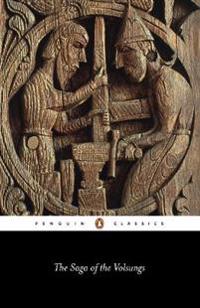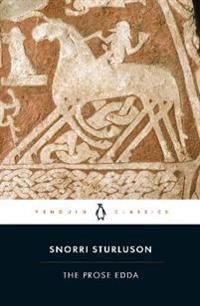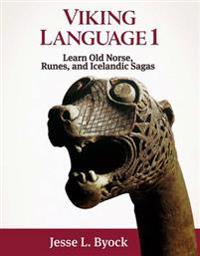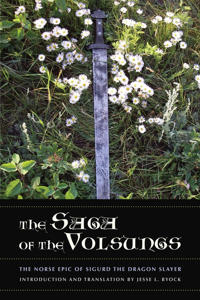Viking Age Iceland (Storpocket)
avJesse L. Byock
ISBN: 9780140291155 - UTGIVEN: 200102Medieval Iceland was unique amongst Western Europe, with no foreign policy, no defense forces, no king, no lords, no peasants and few battles. It should have been a utopia yet its literature is dominated by brutality and killing. The reasons for this, argues Jesse Byock, lie in the underlying struct[...]
The Saga of King Hrolf Kraki (Storpocket)
avJesse L. Byock
ISBN: 9780140435931 - UTGIVEN: 199807Composed in medieval Iceland, Hrolf's Saga is one of the greatest of all mythic-legendary sagas, relating half-fantastical events that were said to have occurred in fifth-century Denmark. It tells of the exploits of King Hrolf and of his famous champions, including Bodvar Bjarki, the bear-warrior':[...]
The Saga of the Volsungs (Storpocket)
avJesse L. Byock
ISBN: 9780140447385 - UTGIVEN: 199905Based on Viking Age poems, "The Saga of the Volsungs" combines mythology, legend and sheer human drama. At its heart are the heroic deeds of Sigurd the dragon slayer who acquires magical knowledge from one of Odin's Valkyries. Yet it is also set in a very human world, incorporating strands from the [...]
The Prose Edda (Storpocket)
avSnorri Sturluson, Jesse L. Byock
ISBN: 9780140447552 - UTGIVEN: 200507The Prose Edda is the most renowned of all works of Scandinavian literature and our most extensive source for Norse mythology. Written in Iceland a century after the close of the Viking Age, it tells ancient stories of the Norse creation epic and recounts the battles that follow as gods, giants, dwa[...]
Medieval Iceland: Society, Sagas, and Power (Pocket)
avJesse L. Byock
ISBN: 9780520069541 - UTGIVEN: 1990-02-07Feud in the Icelandic Saga (Övrig)
avJesse L. Byock
ISBN: 9780520082595 - UTGIVEN: 1993-03-09Feud stands at the core of the Old Icelandic sagas. Jesse Byock shows how the dominant concern of medieval Icelandic society--the channeling of violence into accepted patterns of feud and the regulation of conflict--is reflected in the narrative of the family sagas and the Sturlunga saga compilation[...]
Viking Language 1 Learn Old Norse, Runes, and Icelandic Sagas (Häftad)
avJesse L. Byock
ISBN: 9781480216440 - UTGIVEN: 201303The Saga of the Volsungs (Pocket)
avJesse L. (TRN) Byock
ISBN: 9780520272996 - UTGIVEN: 2012-06"The Saga of the Volsungs" is an Icelandic epic of special interest to admirers of Richard Wagner, who drew heavily upon this Norse source in writing his "Ring Cycle" and a primary source for writers of fantasy such as J.R.R. Tolkien and romantics such as William Morris. A trove of traditional lore,[...]

